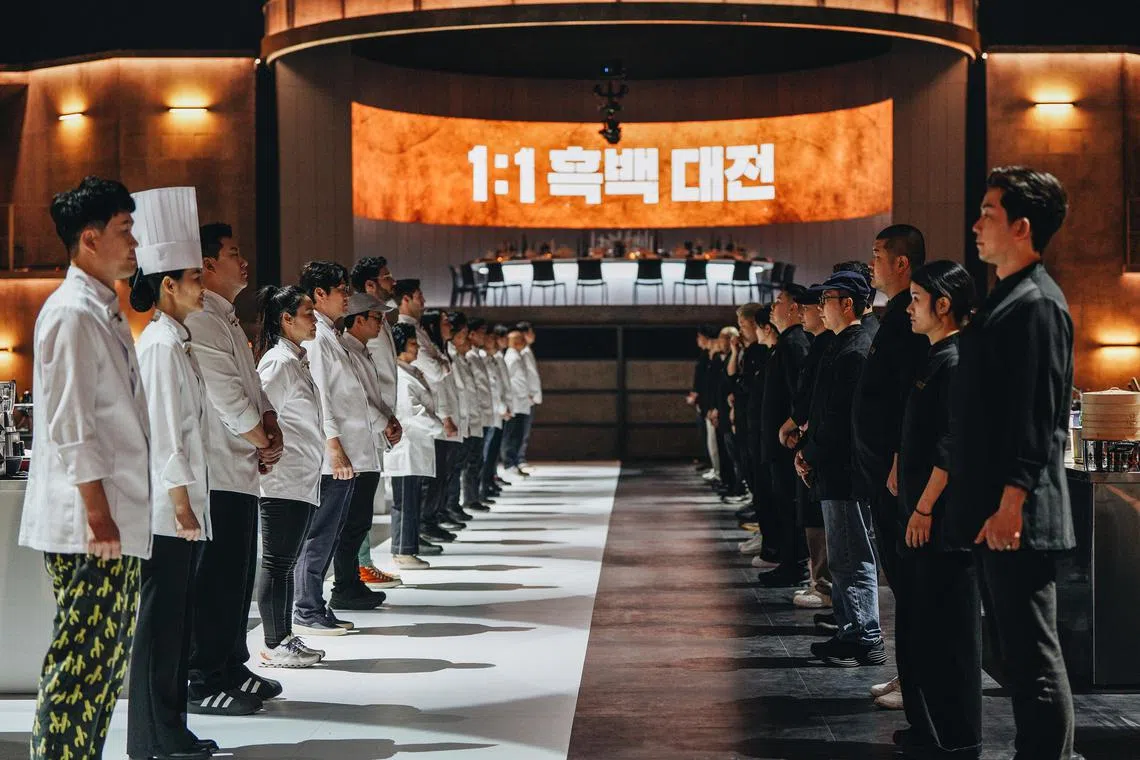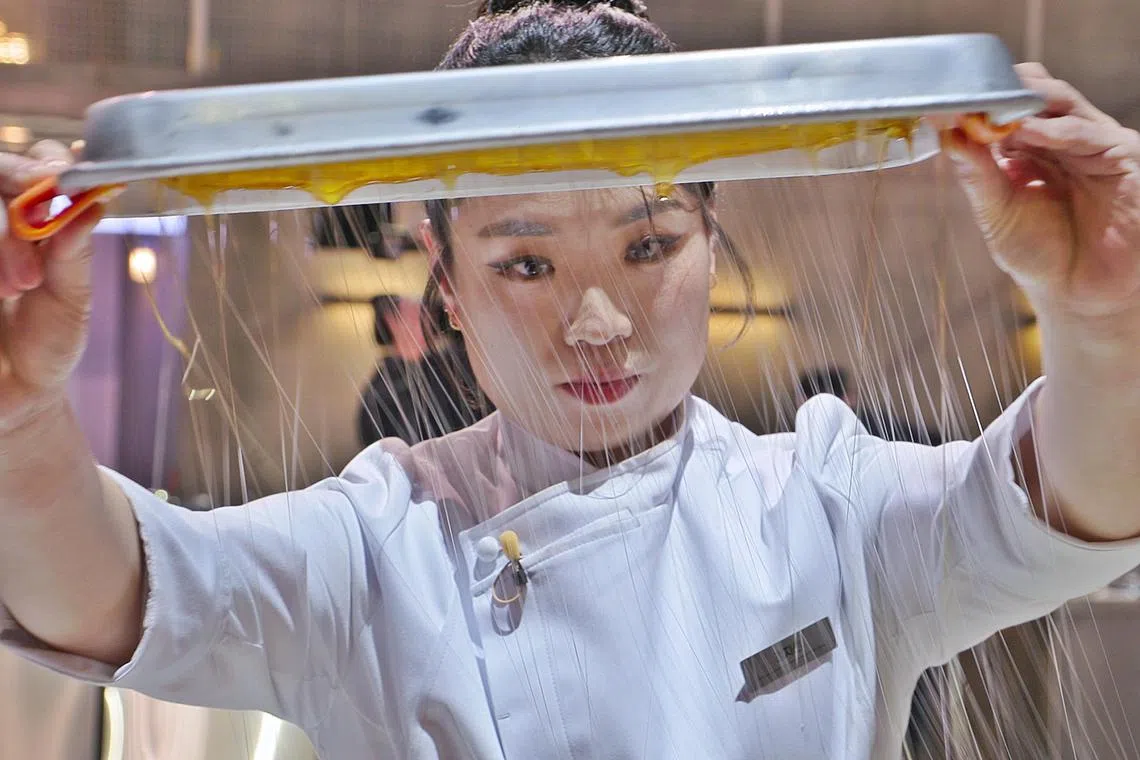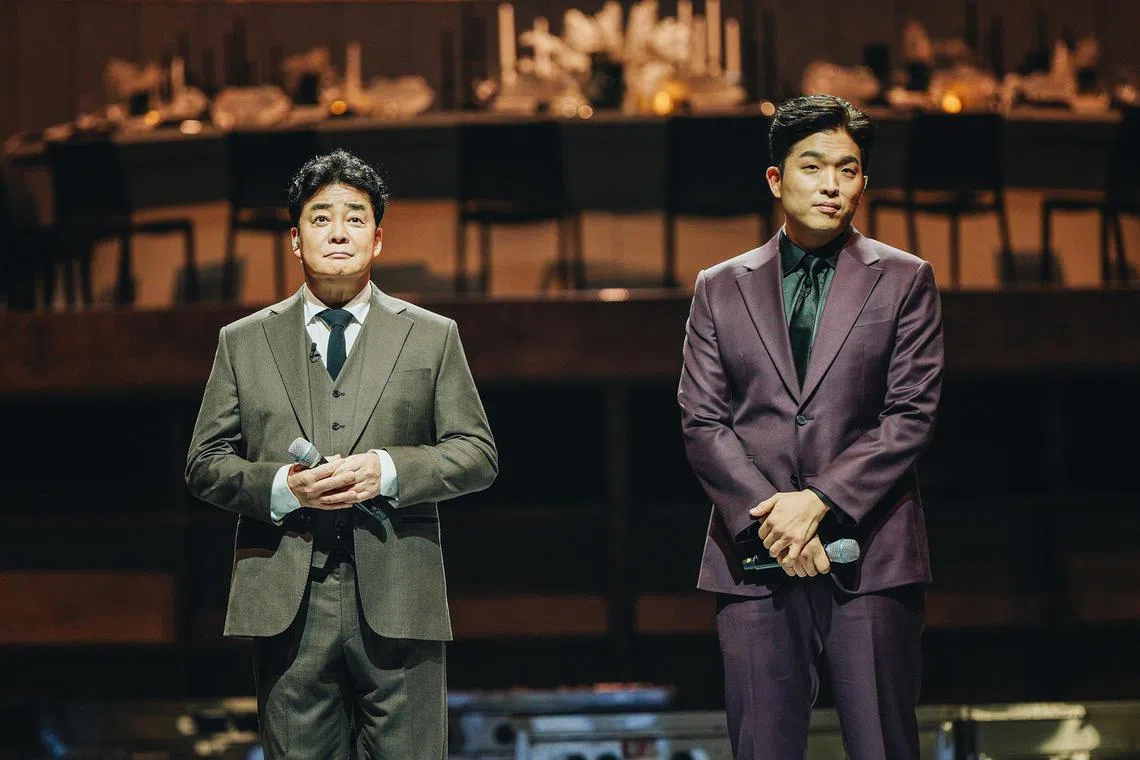Best eats of 2024: Best food TV show – Culinary Class Wars on Netflix
Sign up now: Get ST's newsletters delivered to your inbox

Culinary Class Wars, a South Korean cooking competition show, pitted White Spoon chefs from well-known restaurants against a scrappy group of Black Spoon chefs.
PHOTO: NETFLIX
Follow topic:
The year saw a long menu of options: Chefs Uncut, Somebody Feed Phil 7, Chef’s Table 7, Chef’s Table: Noodles and The Great British Bake Off 15, but none as riveting as Culinary Class Wars.
The South Korean cooking competition pitted a group of 20 White Spoon chefs from well-known restaurants against a scrappy, rag-tag, sometimes chicken-suited group of 80 Black Spoon chefs.
Elimination by judges Paik Jong-won, a restaurateur and celebrity chef, and Ahn Sung-jae of three-Michelin-starred Mosu in Seoul was swift and – in the case of chef Ahn – ruthless. He expelled one contestant in the first round for not serving rice with her dish. During one challenge, Paik walked over to a bin of plates full of leftovers and helped himself, to understand why judges for that competition were leaving food behind.
Casting was on point, keeping viewers riveted to Cooking Maniac’s frequent meltdowns, Auntie Omakase #1’s heartrending story behind her killer kalguksu and Chinese cuisine chef Jung Ji-sun’s lonely battle against sexism in restaurant kitchens.

One of the break-out stars of Culinary Class Wars was Chinese cuisine chef Jung Ji-sun.
PHOTO: NETFLIX
Triple Star, with his K-pop idol looks and mad skills, earned respect for his stoicism and knife work, shredding popiah skin deep into the night.
Controversy fuelled interest in the show too. How did the judges manage to split the competitors into equal numbers of white and black spoons at every stage? Why were there so many team challenges, which stopped contestants from showcasing their skills?
Cultural differences came to the fore. Why was self-taught cook and YouTuber Seonkyoung Longest, a White Spoon, cyber-bullied for disagreeing with her teammates in one team challenge? Why did Napoli Matfia’s garden-variety fighting words (routine for contestants in other cooking competitions) come across as cocky?
The producers showed how a tired genre like a cooking competition can be given new life.
Getting mukbang stars to judge one competition was inspired. Who better to taste and judge vast quantities of food? Also brilliant – setting a challenge in a convenience store, so ubiquitous in South Korea.
Napoli Matfia’s tiramisu, made with cream excavated from shelf-stable buns, showed true genius. And then, of course, there was the final challenge: Endless Cooking Hell, in which finalists made tofu dish after tofu dish until only one was left standing.
More, please.

Elimination by judges Paik Jong-won (left), a restaurateur and celebrity chef, and Ahn Sung-jae of three-Michelin-starred Mosu in Seoul was swift.
PHOTO: NETFLIX


